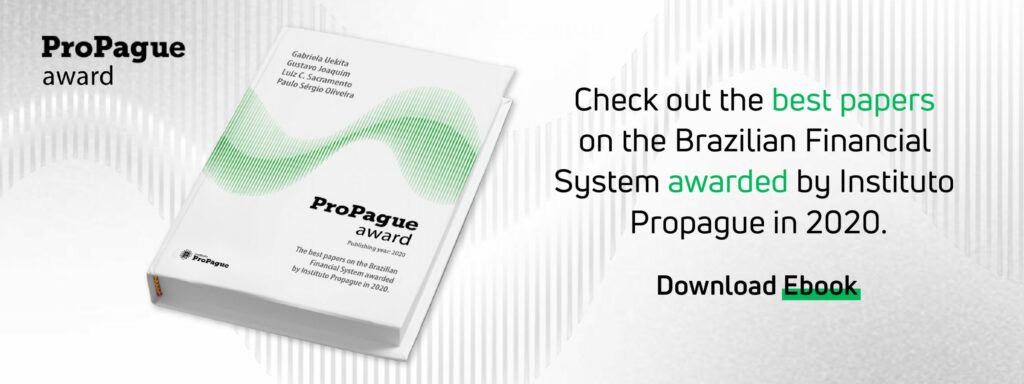The market for fintech lending is growing as startups promise to solve pains faced by Brazilians in search of credit.
A well-functioning credit market is fundamental for a healthy economy at any time, but even more so during a crisis like the one we have been experiencing during the pandemic. According to SEBRAE‘s Small Business Financing in Brazil survey, the demand for new loans by small businesses more than doubled between 2019 and 2020.
In this context, there has been an expansion of fintechs in the lending market, as the Distrito Inside Fintech Report reveals. In 2020 fintechs moved R$4 trillion in loans for businesses and individuals and received capital contributions of more than US$352 million, 13% higher than in 2019.
The Brazilian credit market is characterized by high interest rates and a level of bureaucracy often considered excessive by borrowers. With the intensive use of technology that is characteristic of fintechs, startups not only compete with traditional banks in rates and special conditions for offering credit, but mainly by improving the user experience.
In a survey by PwC Brazil and the Brazilian Association of Digital Credit, 48% of the fintechs interviewed analyze the risk of a credit proposal within an hour. In 46%, the credit approval occurs within 24 hours after the loan request.
The outlook for fintech lenders in Brazil
Internationally, 2015 was the year when the largest number of new credit fintechs were created, as reported in District Dataminer’ study on fintech lending. However, in Brazil, the trend is more recent. According to this same study, there are now 142 fintechs in the Brazilian credit market – and almost 70% of them were born in the last 5 years.
There are different business models that fintechs in the credit market may choose to operate. One common option is the marketplace model, for example, whereby fintechs operate as a platform offering credit products from other institutions. Another innovation is lending-as-a-service, in which the fintech provides services to consolidated retail brands that want to include credit products in their portfolio.
According to Dataminer District, credit fintechs show a tendency to specialize in niche markets, either a specific public or industry. At first, startups main strategy was to bet on solutions for other companies (B2B), but products for consumers have risen since the new regulation that allows loans between individuals (peer-to-peer lending).
The role of regulation in fostering innovation in the credit market
CMN Resolutions No. 4,656 and CMN No. 4,657 of April 2018 established two categories for fintechs lenders to obtain authorization from the Brazilian Central Bank as credit operators: Direct Credit Company (SCD) and peer-to-peer lending company (SEP).
The mapping conducted by District Dataminer shows that a third of existing fintech lenders in Brazil emerged after this change in Central Bank regulation in 2018, even though not all startups in the credit sector seek this authorization.
Fintech companies dedicated to peer-to-peer lending connect people who have available resources and people who are looking for loans, acting only as intermediaries. The Direct Credit Company, on the other hand, is characterized by offering credit based on its own capital resources through online platforms.
In February 2021 there were 52 credit fintechs authorized by the Central Bank. Of these, 9 are in peer-to-peer lending companies and 43 are direct credit companies. In December 2019, only 15 fintechs had the approval by the Central Bank, which shows that the pandemic has not stopped innovation from advancing in the market.
Fintech lending benefits from other Central Bank measures
Besides encouraging FinTech lending businesses with the creation of the two authorized categories, other recent measures by the Central Bank also strengthen the fintech ecosystem, particularly in the credit segment. With Open Banking, fintechs will be able to access more data to build their credit scores, better understand their clients’ financial profiles, and offer products that are better suited to each client.
Other important initiatives are the laboratory for financial and technological innovation – LIFT Lab – and its spin-off LIFT Learning, in which selected startups develop innovative solutions with the support of regulators and researchers. Bxblue, for example, is a fintech focused on payroll loans that participated in the first edition of LIFT Learning in 2020, and has since received a $6.9 million investment, in February 2021.
| You might also like:
3rd year of Open Banking in the UK: financial management, credit and digital payments
Open Banking and Demand: Financial Capability Programs
Big Tech in review: new rules for financial operations worldwide



